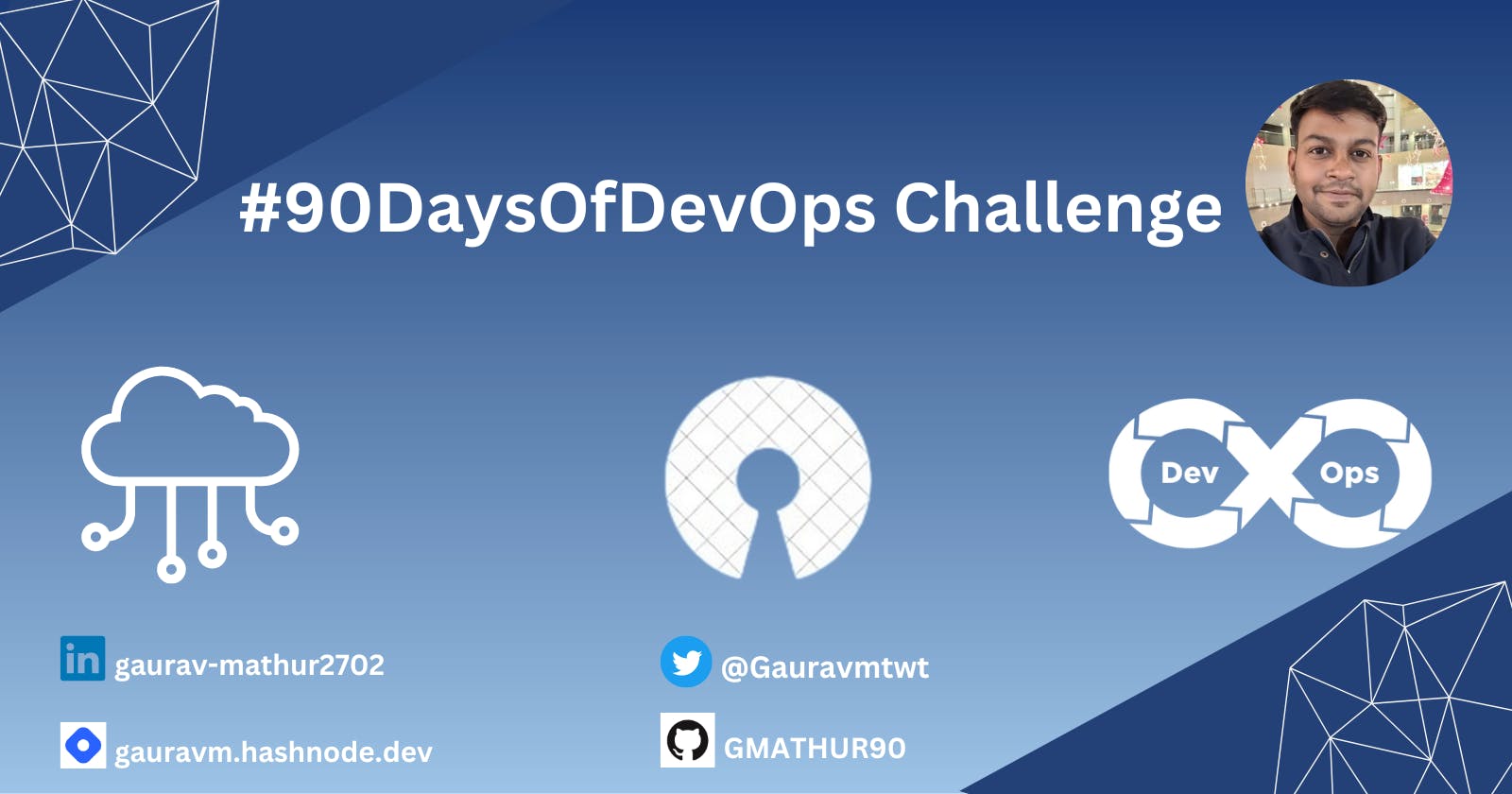I am writing this blog as a challenge I have taken up and that is 90dayofdevops by Shubham Londhe . I will follow the task given by Shubham from his Github account https://github.com/LondheShubham153 on a day-wise basis.
Task for Day-1:
Introduction - Day 1
This is the day you have to take this challenge and start your #90DaysOfDevOps with the #TrainWithShubham Community
Fork this Repo.
Start with a DevOps Roadmap[https://youtu.be/iOE9NTAG35g]
Write a LinkedIn post or a small article about your understanding of DevOps
What is DevOps
What is Automation, Scaling, and Infrastructure
Why DevOps is Important, etc
What is DevOps?
Traditionally, DevOps is considered to be a combination of Development and Operation. In simple terms, the development and operation team comes together to reduce application release time. So, new updates and features can be applied without much downtime.
DevOps can be defined as a combination of cultural philosophies, practices and tools to increase an Organizational ability to deliver services and applications at a fast pace.
DevOps increases the productivity of developer, as well as promote collaboration and communication among teams.
Why DevOps is Important?
The DevOps methodology is important for the following reasons which are as follows:
Continuous Delivery of Software
Better communication and collaboration among teams.
High efficiency and scalability
Less manual intervention and more automation.
What is Automation?
Automation in DevOps means performing tasks with minimum human intervention. It accelerates processes and scales environment, as well as builds continuous integration, continuous delivery, and continuous deployment (CI/CD) workflows. There are many kinds of automation, including IT automation, business automation, robotic process automation, industrial automation, artificial intelligence, machine learning, and deep learning.
What is Scaling?
Scaling in DevOps is characterized as an automation-driven environment where developers or enterprises can adopt DevOps culture and choose the right technologies to scale their business growth.
What is Infrastructure?
In DevOps, infrastructure refers to the technology stack and resources necessary to support software applications. It includes hardware, networking, servers, storage, operating systems, and databases. Infrastructure as code treats infrastructure configuration as code, enabling automation and management. Tools like Ansible and Terraform automate provisioning and configuration. Infrastructure automation is tightly integrated with the CI/CD pipeline. Monitoring and logging tools ensure system health and performance. Treating infrastructure as code in DevOps allows for scalability, reliability, reproducibility, and faster deployments.
Conclusion
I hope you found this article valuable and informative in understanding the significance of open source in shaping your Reputation.
To stay updated with my latest insights and articles on cloud and devops, follow me on Hashnode, Linkedin(https://www.linkedin.com/in/gaurav-mathur2702) and Twitter (@Gauravmtwt).
Thank you for reading, and I sincerely appreciate your support. Let's continue to learn, grow, and make a positive impact in the tech world together.
Connect with me on twitter, Linkedin and Github.

